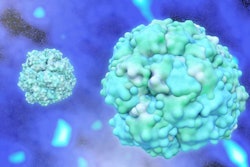Diagnostics company Veracyte has announced that the American Urological Association's (AUA) May meeting will feature nine sessions related to evaluations of the company's prostate cancer and bladder cancer genomic tests.
The two tests, Decipher Prostate Genomic Classifier and Decipher Bladder Genomic Classifier, use RNA whole-transcriptome analysis and machine learning to help inform cancer treatment decisions.
The prostate cancer gene expression test is a tissue-based prognostic test that examines 22 genes in localized nonmetastatic disease. The bladder cancer genomic subtyping test analyzes bladder cancer based on 219 genes.
The data being presented at AUA 2024 in San Antonio expands clinical evidence around using the tests, as well as insights into the biological underpinnings of urologic cancers, Dr. Elai Davicioni, Veracyte's medical director for urology said in the announcement.
Those scheduled to present from poster to podium include Drs. David Han of Columbia University Irving Medical Center; John Sheng from Rutgers New Jersey Medical School; Eric Li from Northwestern University; Nimrod Barashi Gozal of Washington University in St. Louis; Ross Liao of the Cleveland Clinic; Mohammed Shahait, a private practice provider; Yair Lotan of the University of Texas Southwestern Medical Center; and Joep De Jong from Erasmus MC in the Netherlands.
Among the topics in prostate cancer to be presented:
- How Decipher defined the subgroup most at risk of metastatic progression among patients with lower-grade tumors
- Decipher's predicting clinically significant upgrading on final radical prostatectomy pathology
- Genomic signatures observed in active surveillance after radical prostatectomy
- Genomic subtypes across prostate magnetic resonance imaging PIRADS scores
- Transcriptomic features in prostate zonal regions
- Glucagon-like peptide-1 expression
Among the topics in bladder cancer, Veracyte plans sessions or posters pertaining to the below:
- Molecular subtyping after radical cystectomy
- Cancer subtypes and prognosis after neoadjuvant immunotherapy and radical cystectomy
- An IncRNA-based classifier for high-grade T1 bladder cancer
Veracyte employs the Decipher Genomics Resource for Intelligent Discovery (GRID) database (a research use only tool) from which gene expression signatures are derived. Since last year, GRID has increased its whole-transcriptome profiles to 200,000, according to Veracyte.



















